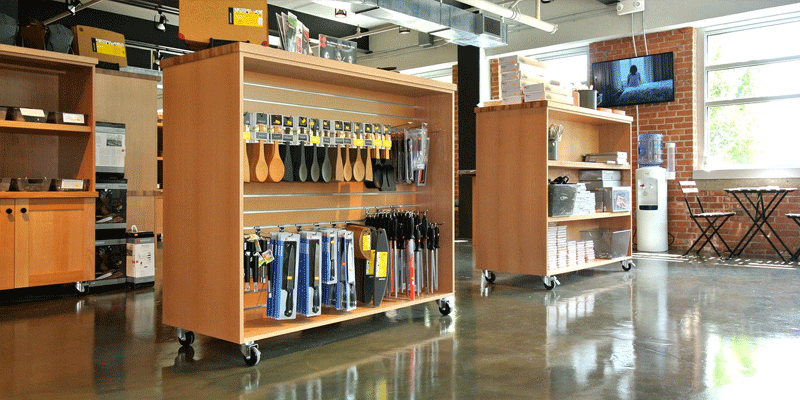One of the most popular and durable flooring options on the market today is epoxy flooring. While it was once considered just for commercial or industrial applications, epoxy flooring has become a popular choice for homeowners and businesses alike.
Unfortunately, many home and even business owners are unaware of the common uses for epoxy flooring or how to install it properly. This article will discuss some of the most common applications for epoxy flooring and how you can install it in your home or business.
Table of Contents
What is an Epoxy Coating?
An epoxy coating is a two-part chemical polymer that creates a liquid adhesive when mixed in its basic form. Epoxy coatings come in both solvent and waterborne types. However, the latter is generally more popular because they can be used indoors or outdoors without causing adverse effects on people or the environment.
Common Uses for Epoxy Flooring

Epoxy flooring has many different uses in both residential and commercial settings. Some of the most common applications include:
Industrial Garages
Epoxy floor coatings are often used in industrial garages as a durable coating that can withstand heavy traffic from vehicles and tools. They can also help prevent concrete deterioration by protecting it from harsh weather conditions like rain, snow, heat, and cold.
Residential Garages

Epoxy flooring can also be used in residential garages to add a sleek and durable finish to the floor that is resistant to stains, chemicals, and moisture. Epoxy coatings can also be tinted in any color or pattern to create a custom look for your garage.
Commercial Kitchens
Epoxy coatings are popular choices for commercial kitchens due to their stain-resistant properties and easy cleanup after spills. This makes them ideal for restaurants, cafeterias, convenience stores, hotels, delis, and other businesses with areas where food preparation is done on a daily basis.
Retail Outlets
Finally, epoxy floor coatings are commonly used in retail outlets as well, thanks to their easy maintenance and ability to withstand foot traffic from shoppers. This can make epoxy flooring the perfect choice for malls, retail showrooms, car dealerships, appliance stores, and other businesses that need a durable floor covering that can handle high levels of activity.
If you’re considering installing an epoxy coating in your home or business, be sure to contact a professional contractor who will have the knowledge and experience needed to ensure proper installation. With the right professional on your side, you can enjoy all of the benefits of this highly-versatile flooring option for years to come!
What are the Benefits of an Epoxy Floor?
One of the biggest benefits of epoxy flooring is its durability. Epoxy coatings are highly resistant to wear and tear, making them a great choice for areas that experience heavy traffic or exposure to harsh weather conditions.
Some additional benefits of epoxy include:
– Ease of cleaning and maintenance
– Resistance to stains, chemicals, and moisture
– A variety of design options, including custom colors and patterns
If you’re interested in learning more about epoxy flooring or are ready to install it in your home or business, be sure to contact a professional contractor today. With their help, you can enjoy all the benefits of this highly versatile flooring option for years to come!
Frequently Asked Questions About Epoxy Installations
1. How long does an epoxy coating last?
Epoxy coatings are designed to be durable and long-lasting. With proper care and maintenance, an epoxy coating can last for many years.
2. How much does it cost to install an epoxy floor?
The cost of installing an epoxy floor will vary depending on the size of the area and the type of epoxy used. Be sure to contact a professional contractor for a more accurate estimate.
3. Can I do it myself?
While you could technically try to install an epoxy coating yourself, we highly recommend working with a professional contractor who has the knowledge and experience needed to ensure proper installation. Trying to DIY this project could result in costly mistakes and the need for repairs.
4. What are the different types of epoxy flooring available?
There are many different types of epoxy coatings available, including those designed specifically for industrial, commercial, or residential settings. The right type will depend on your needs and the area where you want to install it. Talk to a professional contractor about your options and they can help you choose the best product for your space.
5. How long does it take to install an epoxy floor?
The installation process for an epoxy floor will vary depending on the size of the area and the type of epoxy used. In most cases, however, the project can be completed in just a few days.
6. Do I need to prepare my floor before installation?
In most cases, you will need to clean and repair your floor before an epoxy coating can be applied. This is important to ensure that the epoxy adheres properly and creates a smooth, durable finish.
